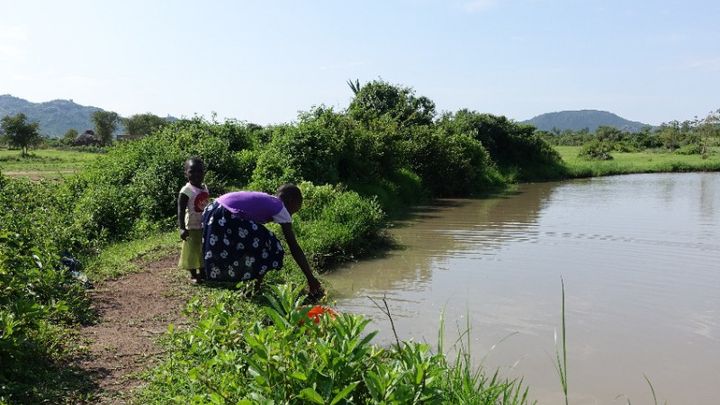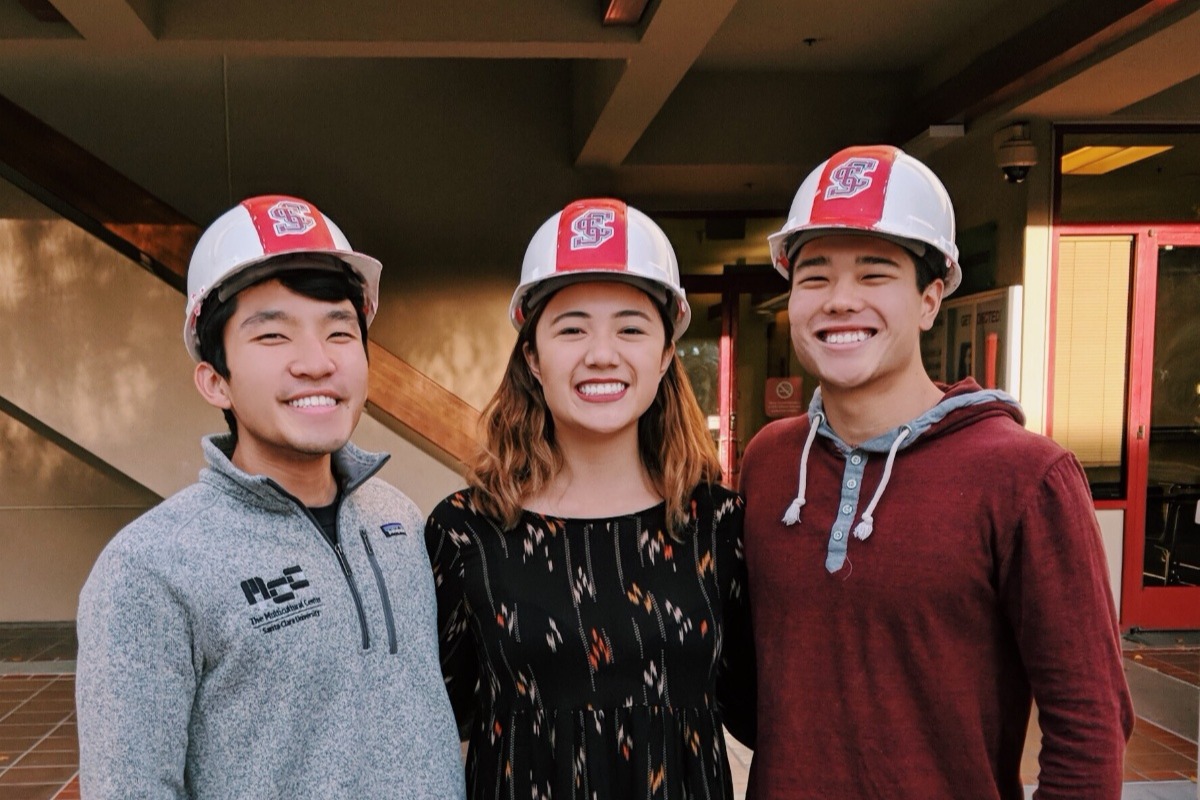Audrey Gozali is fundraising

Clean Water & Energy for Buturi
We are senior engineering students from Santa Clara University. We have learned that so often basic engineering innovations can make a huge difference in the quality of life for a large number of people. As a result of this lesson, we are eager to use our education to make the world a better place. Via the Frugal Innovation Hub, we have found the opportunity to help the Buturi community, a group of six remote villages in rural Tanzania, in East Africa. We are asking for $10,000 to cover materials in order to design and install some basic facilities for our trip on March 31, 2018.
The story:
When was the last time you turned on the faucet and no water came out? Or flipped the switch and no light came on? Were you distressed? Imagine not having a water faucet anywhere for miles around? Imagine no electricity at all, ever? That is the challenging reality in the Buturi Community. You can help change this reality for the 6,000 people who live there.

The lack of clean water creates great hazards to health and well-being. Without electricity, there are no computers or other equipment for education and internet access, and educational activities for the whole community are limited to daylight hours only. Without water and electricity, opportunities for economic growth and sustainable agriculture are nearly non-existent and basic healthcare is not supported.

But, fortunately, we have a solution! Santa Clara University’s Frugal Innovation Hub has connected the Buturi Project with groups of engineering students whose Senior Design Projects are being created to address the need for running water and electricity in Makongoro, the first of Buturi’s six villages that will receive the prototypes of what will eventually be installed throughout all the villages. Seniors Nate, Audrey, and Matt will provide the knowledge and effort to design a system to harvest rainfall using the school roof and to filter contaminated water to support education-related needs. Seniors Patrick, Ruben, and Alfred are designing a solar panel grid to generate and transport electricity to the school.

This new year you can give life-changing gifts of clean water and electricity to a whole village by making a donation to help purchase the equipment and supplies needed to bring water and electricity that will improve the lives of Makongoro residents, most of whom are women, children, and elders. The Frugal Innovation Hub will provide support for the students to travel to Makongoro to install the projects and for them to return a few months later to troubleshoot and improve the systems, as needed. With your partnership, transforming lives is possible.
Want to learn more about our projects?:
Rainwater Catchment System
The goal of our project would be to provide a source of fresh, clean water in the heart of the community. To do so, our team plans to design and implement a rainwater harvesting and purification system for the village school. This clean water would then be used for drinking, plumbing, irrigation of the school-run garden, and sanitation, massively reducing water-borne diseases, and enabling the children to study, rather than collect water.

Buturi Solar
The cost of fossil fuels keeps rising, but the sun will always be there. In Buturi, Tanzania, the sun rises from 6 am and remains, often unrestricted by cloud, until at least 6 pm. Therefore there is already plenty of available sun to be harnessed for low-tech-alternative energy.
Our project will design a solar microgrid to harness this energy to power the school. The microgrid will be able to power 25 laptops, 10 cell phones, and 60 light bulbs. Our goal is to implement this system in March of 2018. All donations will go towards materials for the microgrid i.e solar panels and battery. Our goal is to empower the village with the tools for more accessible and in-depth education.

But that’s not all... We are aware of the power of knowledge and the need for sustainability. Through our partnership with the Buturi Project and with your help to make this project a reality, we will be teaching local leaders the basics for the maintenance of these systems. Please help us fulfill the dream of using humanitarian and environmentally friendly engineering to give Buturi Community some of the basic facilities we take for granted. By doing so, we will empower this community to become self-sufficient and self-sustaining, so they are better able to fight their way out of poverty.
The story:
When was the last time you turned on the faucet and no water came out? Or flipped the switch and no light came on? Were you distressed? Imagine not having a water faucet anywhere for miles around? Imagine no electricity at all, ever? That is the challenging reality in the Buturi Community. You can help change this reality for the 6,000 people who live there.

The lack of clean water creates great hazards to health and well-being. Without electricity, there are no computers or other equipment for education and internet access, and educational activities for the whole community are limited to daylight hours only. Without water and electricity, opportunities for economic growth and sustainable agriculture are nearly non-existent and basic healthcare is not supported.

But, fortunately, we have a solution! Santa Clara University’s Frugal Innovation Hub has connected the Buturi Project with groups of engineering students whose Senior Design Projects are being created to address the need for running water and electricity in Makongoro, the first of Buturi’s six villages that will receive the prototypes of what will eventually be installed throughout all the villages. Seniors Nate, Audrey, and Matt will provide the knowledge and effort to design a system to harvest rainfall using the school roof and to filter contaminated water to support education-related needs. Seniors Patrick, Ruben, and Alfred are designing a solar panel grid to generate and transport electricity to the school.

This new year you can give life-changing gifts of clean water and electricity to a whole village by making a donation to help purchase the equipment and supplies needed to bring water and electricity that will improve the lives of Makongoro residents, most of whom are women, children, and elders. The Frugal Innovation Hub will provide support for the students to travel to Makongoro to install the projects and for them to return a few months later to troubleshoot and improve the systems, as needed. With your partnership, transforming lives is possible.
Want to learn more about our projects?:
Rainwater Catchment System
The goal of our project would be to provide a source of fresh, clean water in the heart of the community. To do so, our team plans to design and implement a rainwater harvesting and purification system for the village school. This clean water would then be used for drinking, plumbing, irrigation of the school-run garden, and sanitation, massively reducing water-borne diseases, and enabling the children to study, rather than collect water.

Buturi Solar
The cost of fossil fuels keeps rising, but the sun will always be there. In Buturi, Tanzania, the sun rises from 6 am and remains, often unrestricted by cloud, until at least 6 pm. Therefore there is already plenty of available sun to be harnessed for low-tech-alternative energy.
Our project will design a solar microgrid to harness this energy to power the school. The microgrid will be able to power 25 laptops, 10 cell phones, and 60 light bulbs. Our goal is to implement this system in March of 2018. All donations will go towards materials for the microgrid i.e solar panels and battery. Our goal is to empower the village with the tools for more accessible and in-depth education.

But that’s not all... We are aware of the power of knowledge and the need for sustainability. Through our partnership with the Buturi Project and with your help to make this project a reality, we will be teaching local leaders the basics for the maintenance of these systems. Please help us fulfill the dream of using humanitarian and environmentally friendly engineering to give Buturi Community some of the basic facilities we take for granted. By doing so, we will empower this community to become self-sufficient and self-sustaining, so they are better able to fight their way out of poverty.
- M
- A
- J
38 supporters
